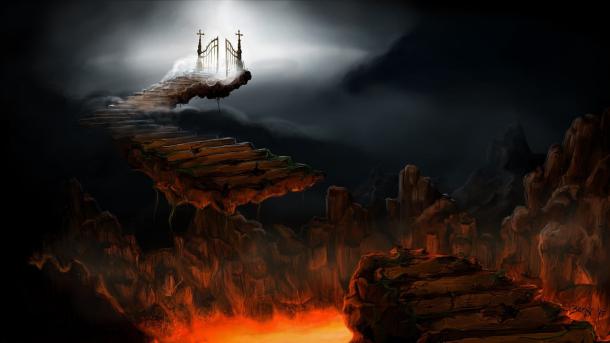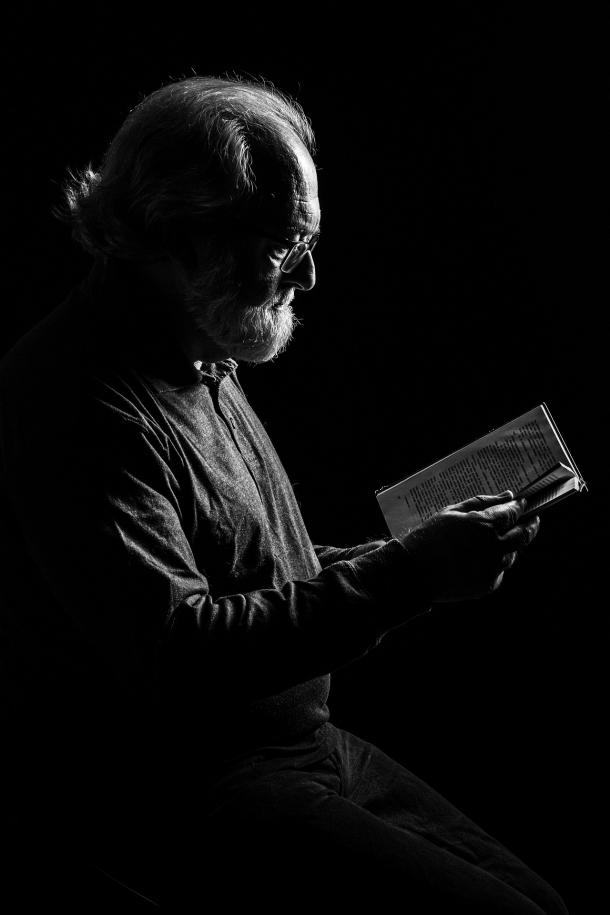0%
THE WRITER AND THE CRITIC
To the Writer and the Critic
Before concentrating fully on the notion of the writer, I shall first try to very briefly make an important distinction between the two roles – that of the writer, and that of the critic. I am in agreement with the great Mr. Eliot whom separates the difficulty presented in the making of the two literary works, and gives the edge in the favor of the artist, the writer. This is, and I find that to be the case, as well, due to the amount of requirements one has to meet when writing a piece of literature in contrast to critic. A writer has to write, but in order to do that he must know what to write about, and that itself is no easy problem to have. But once that problem is solved, the writer’s distress is hardly alleviated, for if a writer’s job is simply to write about himself, he would write an autobiography, and that sort of writing he could only produce once. Instead, what the writer needs is a sort of stage to set. A set for a play, more-less, filled with characters, and plots, and development, and detail. And that set may or may not be a real place, or a fictional one, and those characters may be real, or fictional, and they may be represented in various ways, and the plot needs to have a beginning, a rising action, a climax and preferably a denouement, as well as other aspects too many to name. And, on top of all that, the writer is told, ‘Make it interesting!’
Now, obviously this last parody of the writer is what I have said it to be right now – a parody, and no true writer should listen to someone saying if his work need or needn’t be ‘interesting’, but the point is that the obligations of the writer are much more numerous than that of the critic. The critic has to remain honest to the history of literature, and needs to be a student of literature, as does the writer, in order to be able to do his job, but he doesn’t have to go beyond the comforts of his job description which is, as many would say, to ‘critique’. The writer does not enjoy this luxury, and has to have a keen sense of literary knowledge, a keen sense of self, and a keen sense of the present. This is not to say that a great piece of literature cannot be made without the presence of all of these aspects, the contrary is possible. And I do not mean that the great library needs to be read in order to write, this is also false. However, one is not a blank canvas, and as we know, nothing can come from nothing, therefore, it is the obligation of the true writer to become familiar with his literary heritage in order to be able to properly enter the realm of literature and be aware of what kind of a realm he is entering, or else he may be eternally baffled by the weird sound of Yeats’ Spiritus Mundi, and may not appreciate his adding to the Spiritual Intellect.
If the writer is not in touch with himself, as he should be, how is he to communicate the effects of everyday life to us, even in the most plain of language? How is the writer able to convey emotion which he cannot conceptualize? But maybe one can write without emotion. Fair enough. I shall accept. But if one cannot write about the inner self, is it enough to know how to write about the outer self? And which outer self is one going to write about? Does the present hold any relevance if the writer cannot conceive it? And if the writer cannot realize the connection of the present and the past, and appreciate it in its diachronic and synchronic beauty, then one cannot claim to be a student of literature, which is what every true writer is, and should be, and as such cannot pay homage to the ones before, and if he has no emotion to convey about all that is left than I find it close to impossible to imagine how someone could write in that kind of circumstance. Maybe the answer to this dilemma is written in some book somewhere, but if it is, I have yet to read it.
The critic, as I have said has to have all three aspects, and this is simply because the critic has to make a valid criticism, and how is he supposed to do that if he is simply unable to grasp the same things as the writer when writing the work? If this happens, and it does happen often, then one of two things must have been the reason for the confusion. The first being that one of the two must have been more intact with the three aspects and failed to either convey them in writing, or recognize them in the writing presented. Often times, in the case of the critic, if he is the one with the greater experience, this sensation is felt as a need for more. As if the literary work for the more experienced critic represented a glass of water and upon drinking the full glass the critic’s thirst has not been clinched. This should not be understood as a fault on behalf of the writer. The writer should be ‘critiqued’ by the critic based on the amount of water he had supplied, and not otherwise simply because the critic needed a whole gallon of water to satisfy his thirst. If the writer is aware of his literary standing, as one should, and understands that it is a gradual climb, rather than a do once, write once-type of ordeal, than simply by existing and living up to the principles felt by the conscience of every true writer, in the next go-around the writer will present the critic with two glasses of water, and so on.
The point, i.e. the distinction that I have yet to stress is very obvious and I have to make it here before moving on to another crucial point, and it is as follows: The writer and the critic are the same person, however, writing and critiquing are two different actions, even though both executing these actions are one. The reality which no one should even dare argue is that everyone is able to write, therefore, everyone is capable of being a writer (not to be confused with the author). With this we can deduce that everyone capable of writing is also capable of being a critic. The distinction is simply in the two processes of creation.
The similar distinction can be made when comparing the work of a historian to that of the writer. The historian, who is capable of becoming a writer just as a physicist or farmer would be, but in all likelihood is not due to his use of his profession as a label, also writes, but he does not write like the writer writes, he does know history but is unable to communicate it meaningfully without the aspects which the writer has natural command of, whereas the writer is a capable historian, and the poet is a capable philosopher and makes use of the earthly knowledge from all fields of study by skillfully, meaningfully illustrating the seemingly visible to someone as if it were something never before seen. The writer takes the silk and the wool and weaves his carpet peacefully, carefully, and compulsively until the result is something which is undetectably the sum of its parts, but is, furthermore a sublime product which needed delicate shaping and skillful craftsmanship. And when the historian looks at the carpet, he may well be able to perceive its detail and value for that is what any person would be capable of doing and it is simultaneously a credit to the writer’s expertise. The historian would even be able to tell us something about the Persian rugs, the Silk Road, and perhaps even something about the material itself, its country of origin, luxuriousness, and if it were once used as currency, but he would not be able to weave the rug, he would not be able to present the spectator with a masterpiece like the writer would. Even if he had all the same materials, he simply does not have the language to weave.
For the sake of illustration and consistency let us stay with the historian a bit longer in order to clarify another great distinction which not many people distinguish nowadays, but surely it is one which has plagued the 21st century, and that is the importance of labels for enlarging the credibility and self-esteem of the false writer. You may as well implement this logic for anything else than what I am illustrating here, and in most cases probably the same would be true, however, I find that in the case of the writer the use of labels for validation is counterproductive, and a desecration of the literary heritage that all true writers belong to and cherish. The historian may consider the label of ‘historian’ as a profession, and there would be nothing wrong in so doing, but the true writer may never consider the label ‘writer’ as a profession. This would be a violation of the nature of the art form.
The true writer writes. It is as continuous a process as praying is to a priest. One does not simply forfeit writing having written once, or even dozens of times. To the true writer writing is a compulsion, it is as daunting a thing as an addiction is to an addict. And there is seldom exception to the true nature of writing. It is an itch that only grows once it is subdued, until it is stimulated, but then comes back again and so on until that itch is nothing more than a reflex, a tingling of the brain, an instance of eureka, when the writer feels an onset of inspiration, and a need for the pen and paper. That is, alas, how it should be.
Коментари
Филозофски факултет у Нишу задржава право избора коментара који ће бити објављени, као и право скраћивања коментара.
Коментаре који садрже говор мржње, псовке и увреде, као и било који други вид непримерених или коментара који се директно не односе на чланак који коментаришете, не објављујемо.
Задржавамо право да коментаре којима скрећете пажњу на словне грешке, техничке и друге пропусте, као и коментаре који се односе на уређивачку политику не објавимо, али такви коментари су доступни за увид администраторима и уредницима, и на њима се захваљујемо.
ЗАКОН О ЈАВНОМ ИНФОРМИСАЊУ, члан 38: Забрањено је објављивање идеја, информација и мишљења којима се подстиче дискриминација, мржња или насиље против лица или групе лица због њиховог припадања или неприпадања некој раси, вери, нацији, етничкој групи, полу или због њихове сексуалне опредељености, без обзира на то да ли је објављивањем учињено кривично дело.
Мишљења изнесена у објављеним коментарима представљају приватне ставове њихових аутора и не представљају званичне ставове Филозофског факултета у Нишу ни аутора чланка.
Слањем коментара потврђујете да сте сагласни са правилима коришћења.





